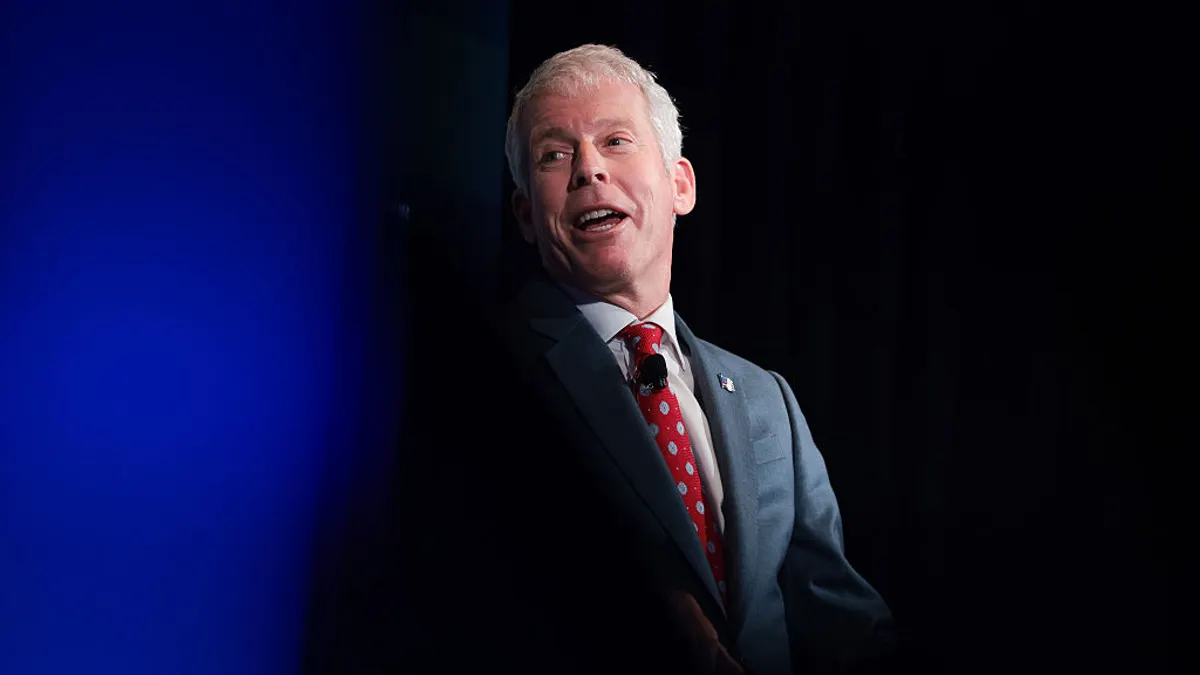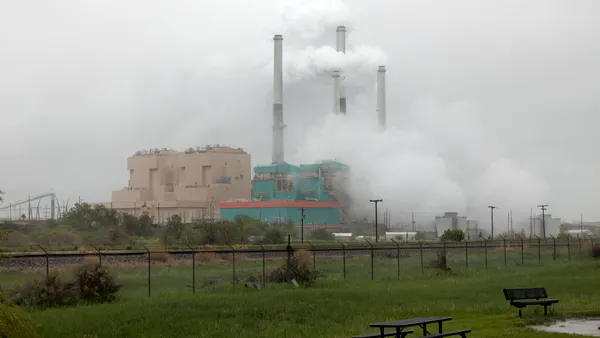Dive Brief:
- A consortium of U.S. companies Westinghouse Electric Co. and Bechtel signed an engineering development agreement with a state-owned Polish company on Monday, committing to partner on the design and construction of Poland’s first nuclear power plant.
- “This initiative originally started during the first Trump Administration and could ultimately accommodate a total of six [Westinghouse AP1000 nuclear power plants] across two sites,” the Department of Energy said in a release.
- Energy Secretary Chris Wright oversaw the signing of the agreement. In a keynote speech the same day at the Three Seas Business Forum in Poland, he criticized the climate policies of the U.S. and Europe, saying, “The two biggest ‘climate solutions’ in the coming decades are the same as they were in the last two decades, natural gas and nuclear, for the simple reason that they work.”
Dive Insight:
Wright said Friday at the World Economy Summit that the current Trump administration is aiming for a nuclear “renaissance,” Semafor reported.
Before his appointment as energy secretary, Wright served as the chairman and CEO of oil and gas services company Liberty Energy and as a board member of the small modular nuclear reactor company Oklo. Under Wright’s leadership, Liberty invested $10 million in geothermal company Fervo Energy.
The secretary’s nomination drew controversy due in part to a video he posted on LinkedIn in 2023 which begins with him stating, “There is no climate crisis, and we’re not in the midst of an energy transition, either.” But during Wright’s confirmation hearing in the Senate, he said, “Climate change is a real and global phenomenon.”
In February, Wright said that DOE under his leadership will focus on expanding baseload generation and supporting the development of next-generation nuclear technology, along with fossil fuels, geothermal and hydropower.
During his keynote, the secretary said that “climate alarmism has clearly reduced energy freedom, and, hence, prosperity and national security across Western Europe.” He compared the Soviet Union’s former control over Central Europe to climate policies of the U.S. and Western Europe that focus on limiting carbon emissions and increasing the development of renewable energy resources.
Wright said that climate policy “deprives citizens, consumers, of choice. It is top-down imposition of mandates for the energy system.”
Regarding the Poland nuclear energy agreement, the secretary said that “partnership in energy, if chosen wisely, tends to be very long-lasting ... The U.S. nuclear relationship with Poland will tightly bind our nations through the next century.”
Monday’s agreement is a follow-on to an initial contract and is “part of a larger nuclear energy security deal worth tens of billions of dollars to build large-scale civil nuclear reactors in Poland,” DOE said.
The deal was made between the Westinghouse/Bechtel Consortium and Polskie Elektrownie Jądrowe, a special-purpose vehicle company entirely owned by Poland’s state treasury. Poland selected Westinghouse as its supplier for the project in November 2022, and the Polish government announced funding for the project last September.
The Polish government will contribute 60 billion zloty to the project, according to Westinghouse, and the total cost of the project will be 192 billion zloty, or US$51 billion.
“The [engineering development agreement] is an important step for the project in Choczewo, Pomeranian Voivodeship and paves the way for the next steps of the project, which include design, sitework, regulatory and procurement activities,” DOE said. “This Westinghouse AP-1000, already operating in the U.S., will be constructed by Bechtel as a key partner in the proposed U.S. delivery team ... Actual construction is expected to begin in 2026.”














